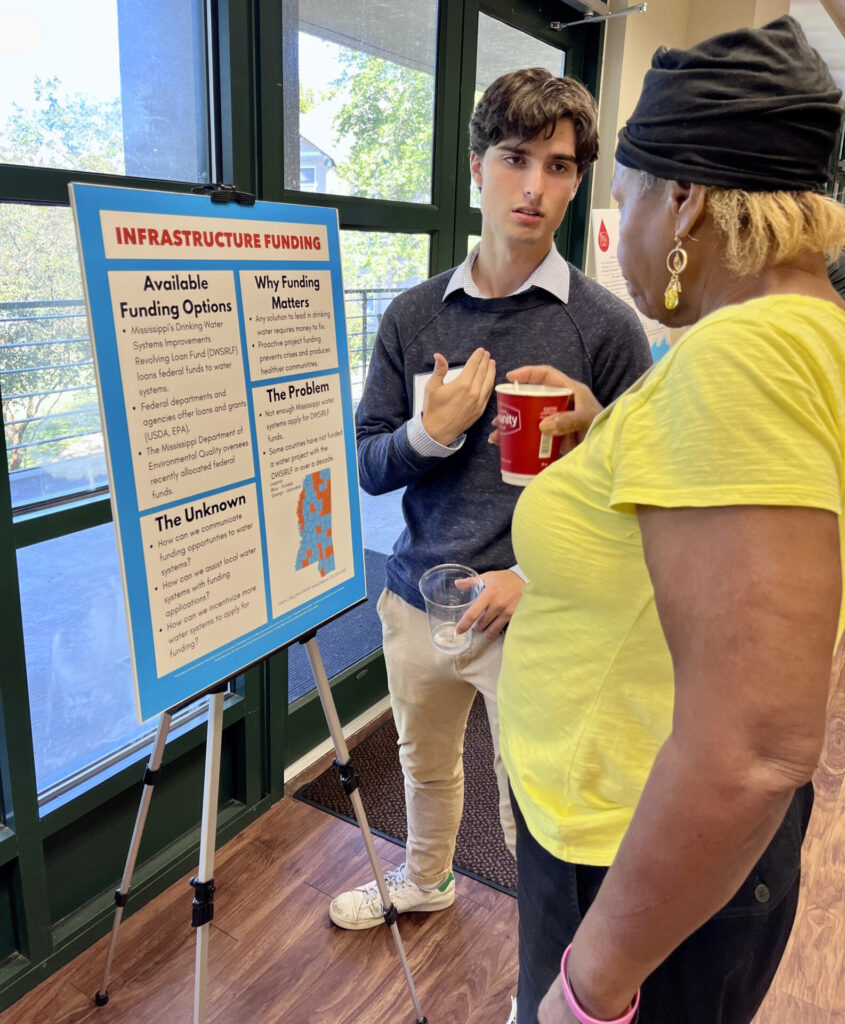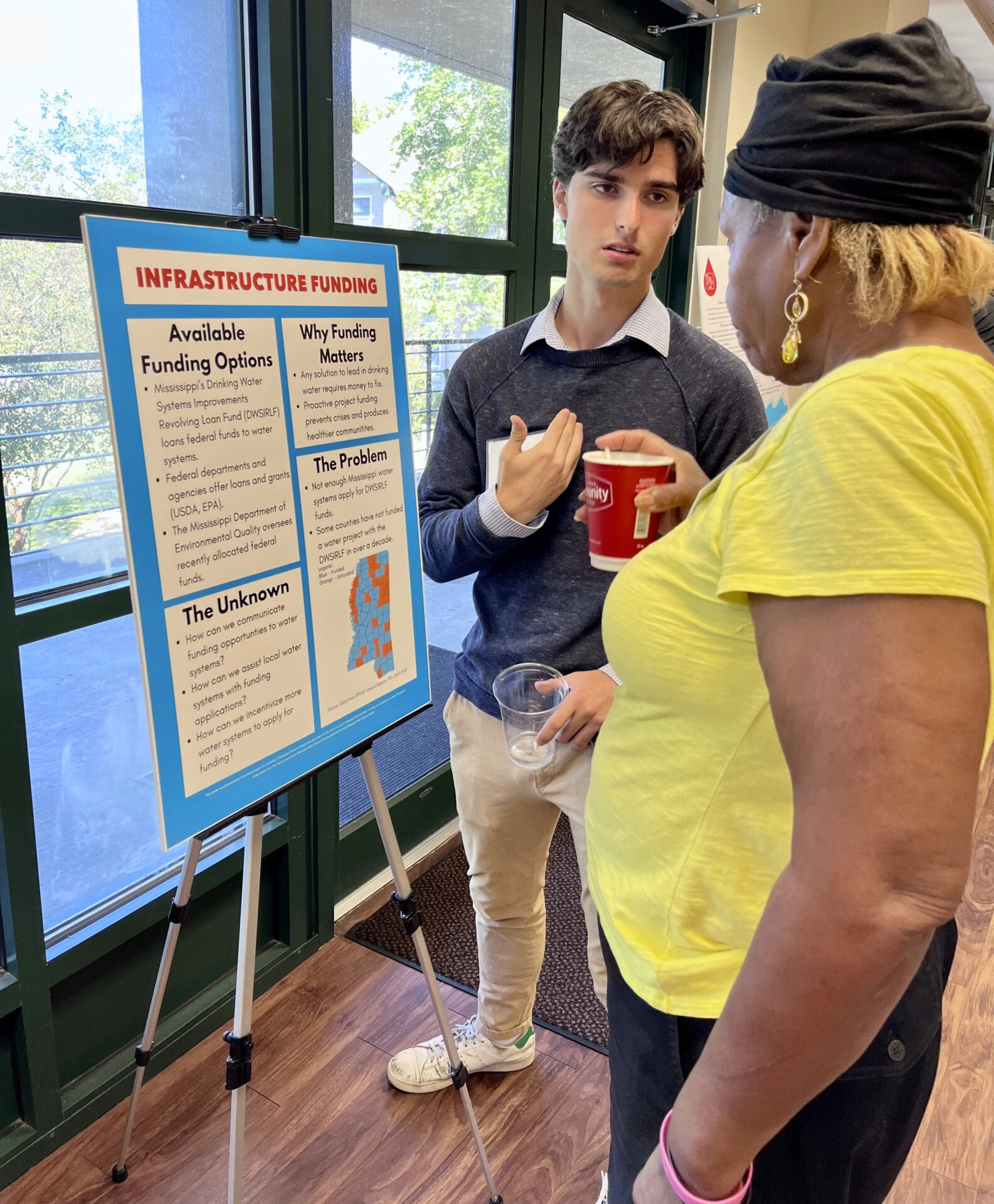By Clara Turnage
University of Mississippi

Water quality issues in Jackson have potentially led to more than 1,000 school disruptions each year between 2015 and 2021, according to a recent study in Nature Water co-authored by a University of Mississippi researcher and undergraduate student.
The study, “Boil water alerts and their impact on the unexcused absence rate in public schools in Jackson, Mississippi,” investigates the correlation between boil water notices and school attendance records in the Jackson Public School District.
The city of Jackson issued, on average, 509 boil water alerts per year between 2015 and 2021. Each time a new alert was issued, the school district’s unexcused absence rate for that day and the following school day rose by between 1% and 10%, the study found.
This means some 1,018 potential school disruptions occurred in the district each year, the study concluded.
“The way that the media and some elected officials in Jackson talked about the water crisis was as if they weren’t looking at these downwind consequences,” said Erica Walker, a Brown University epidemiologist who led the research. “We need to talk about the big things, the political things, but we also have to understand that this is affecting a generation of people that are losing out on their education.
“It’s impacting the life trajectory of Jackson’s future.”
Walker, a Jackson native, asked for help from the university’s National Sea Grant Law Center to gather information and research into the topic after finding a dearth of data available regarding the city’s water crisis. Stephanie Otts, the center’s director, and Clark Etzel, a junior public policy leadership major from Russellville, Arkansas, helped with the project and are named co-authors of the study.
Jackson made international headlines in 2021 after a water system failure left thousands without clean drinking water. But even before the national attention, the Mississippi capital faced years of problems relating to drinking water, Walker said.
Until this study, there had been little attention on the impact of water disruptions on schools and education, Otts said.
“Water is essential, but I don’t think the conversations we have around our water system are comprehensive enough,” she said. “The importance of this research is adding education to the conversation.”
Interestingly, not all boil water alert responses were the same, Walker said. In some cases, particularly in schools where much of the student body receives free and reduced lunches, unexcused absences in certain schools would decrease, though the district’s rate still rose.
“A lot of these students depended on schools to get a free lunch and breakfast,” Walker noted. “I can’t imagine being in that situation where you have to escape home to get a meal.”
Although Walker is from Mississippi, Otts and Etzel were able to provide the context necessary for the data to be meaningful, she said.
“They were able to contextualize what this means in a historical and current setting,” Walker said. “Our data means nothing without context. If you don’t understand the problem and provide context, it’s just another statistic.
“Stephanie and Clark, they were tremendous assets to this study and are tremendous testaments to their institution.”
Otts said she wanted Etzel, an honors college student working for the National Sea Grant Law Center as a research assistant in 2022, to have an opportunity to take the reins in this research under her supervision.
“It was intimidating at first, but after starting on the project, it was empowering to know that I had the skills and insight to contribute,” Etzel said. “She did a really great job of letting me learn for myself but also guiding me.
“I learned a lot about researching and how not just to meet deliverables, but to look deeper for myself.”
Being published in Nature Water as an undergraduate is a boon to Etzel’s education, Walker said. It’s also a chance to lift Southern voices and show the dedicated and passionate research going on in Mississippi, she said.
“This is his ticket to anywhere,” Walker said. “I don’t know any undergraduate students who have a co-author byline in Nature Water.
“But it goes to show that when we focus on the problems in Mississippi, we can empower the Clarks. If we can empower the Clarks of Mississippi, they won’t have to move to another state to get a good job. They can stay right here and make a change.”

